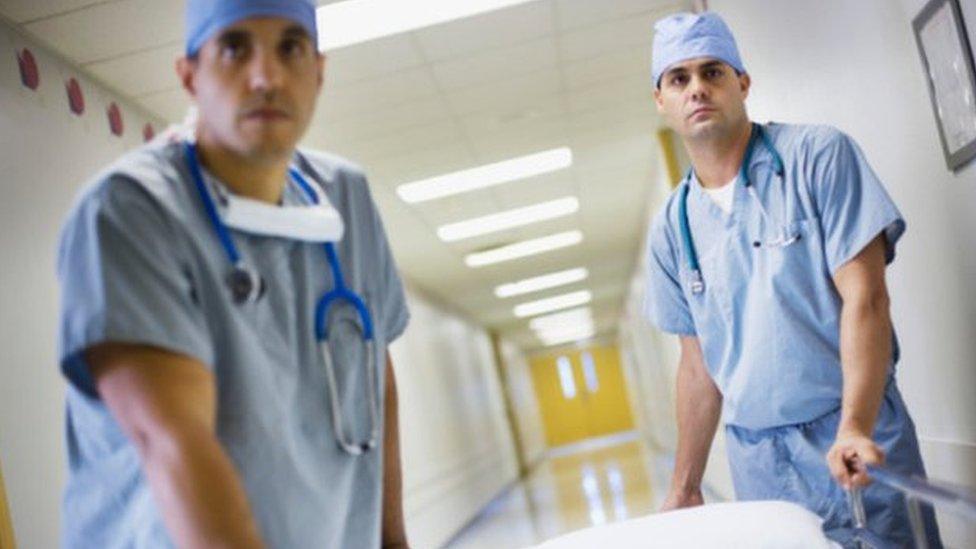Hospitals and airlines – on the same safety journey
- Published
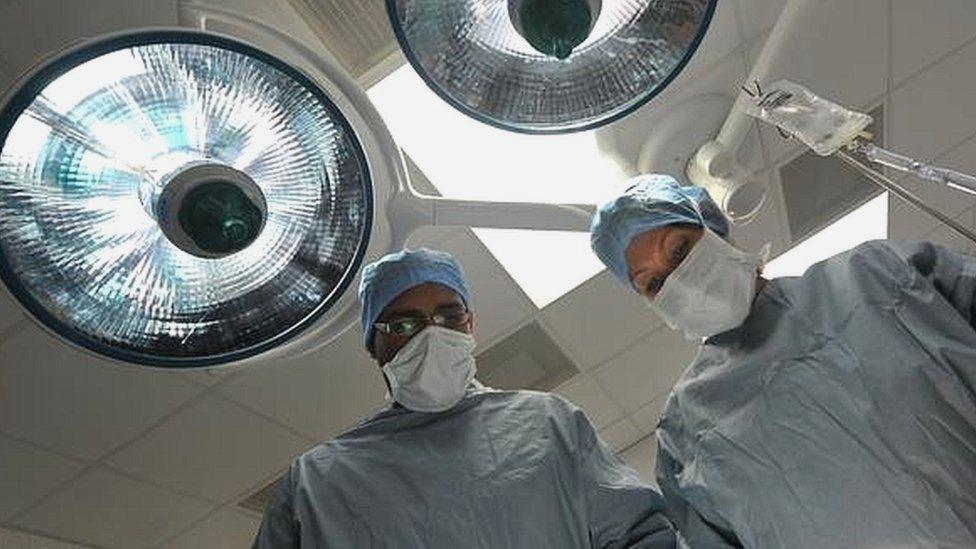
Jeremy Hunt praised improvements but urged a move away from a "blame" culture
In the august London-clubland surroundings of the Royal Society and Lancaster House, a high-level conference has taken place this week.
Westminster politics, scientific research and diplomatic matters have not been on the agenda.
Instead, this international gathering was all about making hospitals safer.
The patient safety conference was the first such global meeting of its kind led by ministers.
At the centre of the discussions was a striking figure - there are apparently one million deaths every year around the world caused by medical mistakes.
Health Secretary Jeremy Hunt, who co-hosted the conference with his German counterpart, said the figure for such avoidable deaths in England was about 150 a week.
"We need," he told the conference, "to ask what is blocking the development of the supportive, learning culture we need to make our hospitals as safe as they should be".
Much progress had been made in England, said Mr Hunt, since the Mid-Staffordshire scandal, with a tougher inspection regime playing a part.
But change was still needed, with a move away from a "blame" culture, he added.
Plane crash lessons
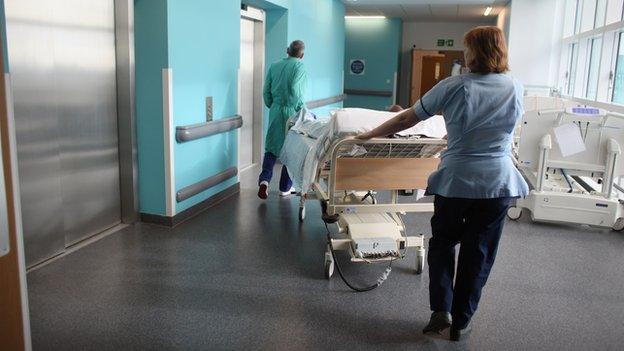
Jeremy Hunt believes that much progress has been made, with a tougher inspection regime
New measures were unveiled by the secretary of state to try to achieve this shift, including tougher legal protection for NHS whistleblowers, and staff participating in internal trust investigations and enquiries on safety incidents mounted by external agencies.
The airline industry is widely quoted in this context.
Journalist Matthew Syed, author of Black Box Thinking, spoke at the conference. He referred to an accident which changed the safety culture in aviation.
A crash in the 1970s which left 10 dead was blamed on the pilot failing to notice that his plane was dangerously low on fuel.
But at the time, he was dealing with another potentially lethal problem with the landing gear.
Colleagues either had not noticed or for whatever reason did not tell him about the fuel issue.
The lesson was that there had to be much more open discussion, with the most junior team members encouraged to speak up.
'No-blame' investigations
Airlines have transformed safety training and reduced accidents. Now there is a push to take health in the same direction.
The newly-announced policies include a health-safety investigation agency following the precedent of the Air Accident Investigation Branch.
A crucial part of its brief will be to hold "no-blame" investigations.
That is where the legal protection aspect is so important. Staff will know they can speak frankly about hospital incidents without fear of their evidence being used against them.
Central to this philosophy is the idea of continuous improvement and that however senior a clinician or manager may be, there is always scope to test procedures and experiment with new ways of working.
Ministers believe that the NHS delivers world-class performance in many areas - but must be honest about those failures which do happen.
Openness about safety and rectifying mistakes must be embedded in everyday working, they say.
Jason Leitch, who heads the patient safety programme at NHS Scotland, was also at the conference. He says there has been 16.5% drop in hospital mortality rates since the programme was started in 2007.
Justice access denied?
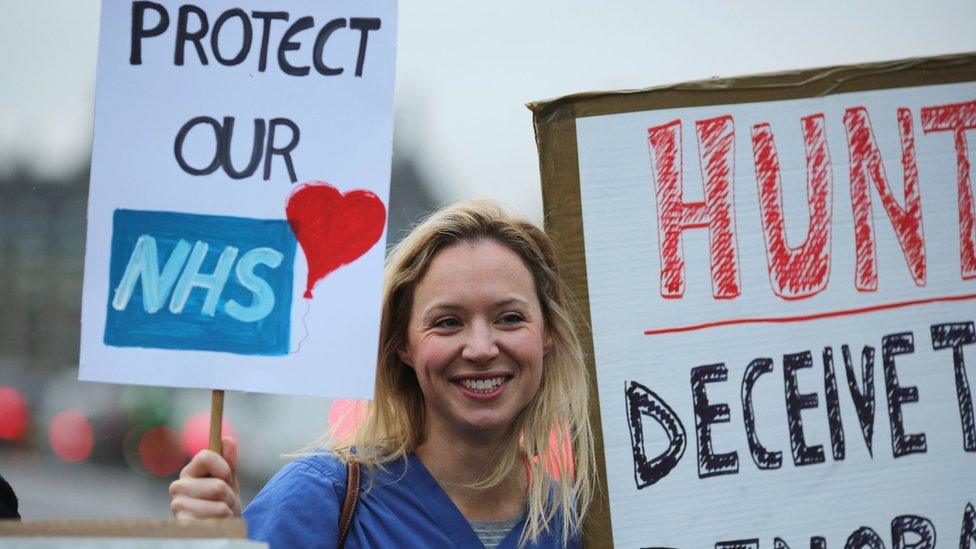
Junior doctors striking over a new contract say working hour safeguards are being weakened
Some at the conference see the renewed safety drive by the Department of Health as a watershed moment.
But Peter Walsh, of Action against Medical Accidents, has questioned the protection against future litigation for NHS staff giving evidence to investigations.
He argues this will mean patients who have suffered because of mistakes could be denied access to justice.
Junior doctors out on picket lines in England this week have also criticised the government's credentials on safety because, in their view, a new contract is being imposed with weaker safeguards on working hours.
Mr Hunt has made transparency and honesty over safety in the NHS one of his mantras.
It is his chosen agenda rather than the growing pressures on A&E and other declining performance issues also highlighted this week.
The patient safety conference and pronouncements will ultimately have to be judged against outcomes.
- Published9 March 2016
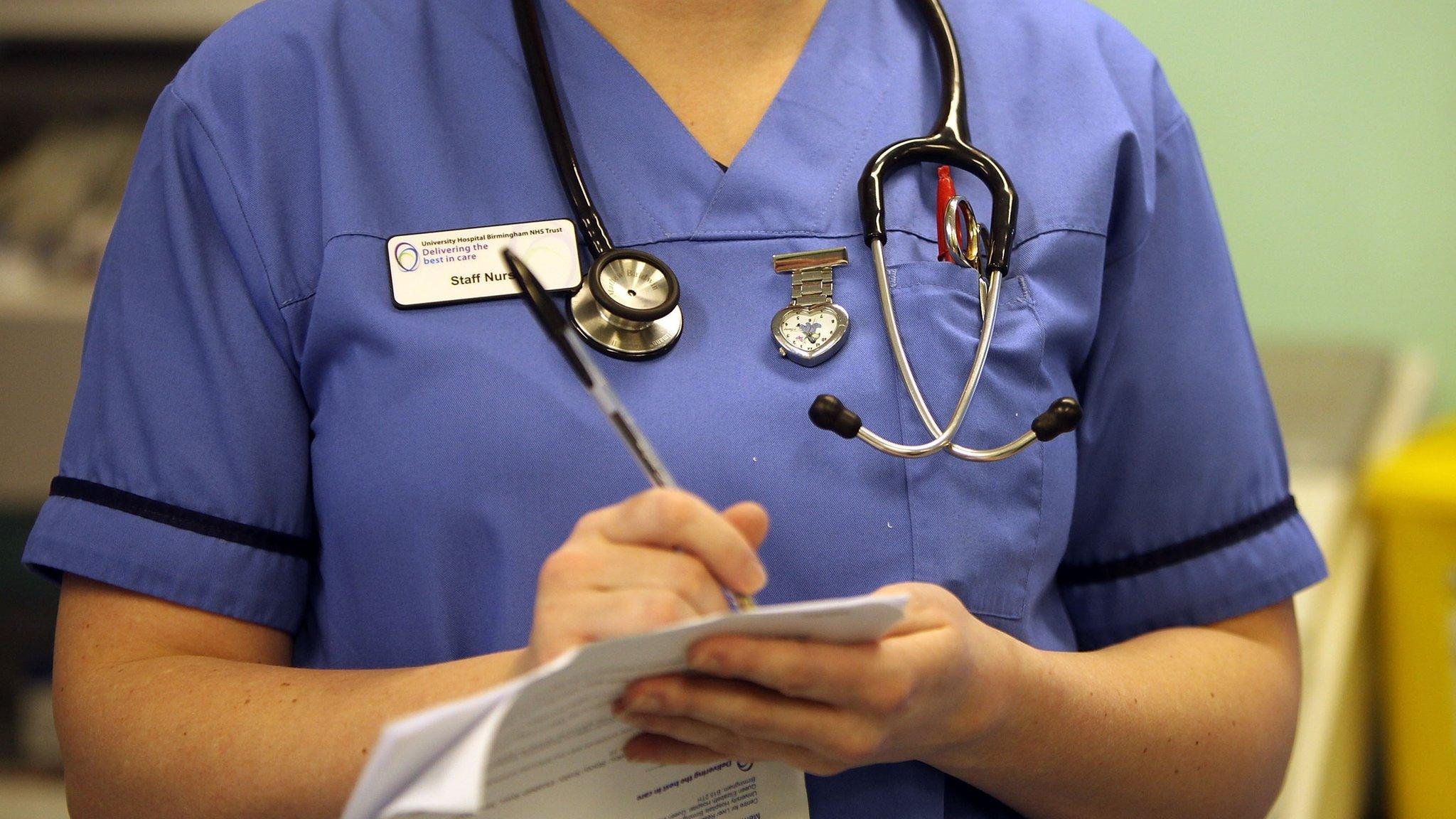
- Published15 October 2015
